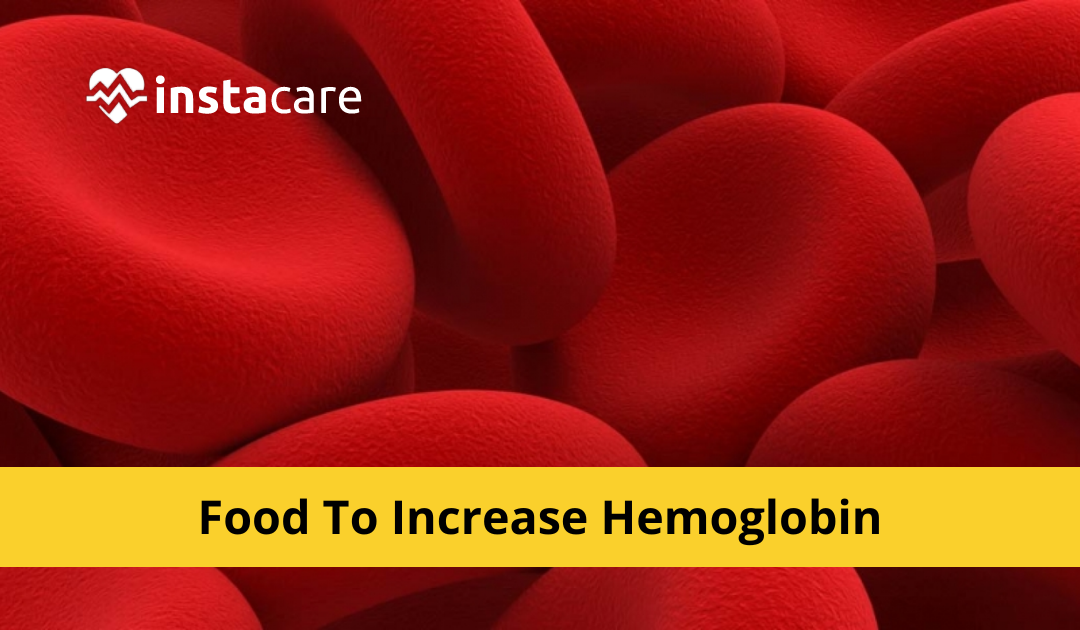The protein hemoglobin is present in red blood cells. These cells are also in charge of transporting oxygen across the body. Hemoglobin transfers carbon dioxide from cells to the lungs and delivers oxygen. When someone exhales, carbon dioxide is emitted. Low hemoglobin levels might make several functions difficult for the body to accomplish.
How Does Hemoglobin Function in Our Bodies?
The main job of the red blood cells is also to transfer oxygen from the lungs to the body's cells. RBCs include a protein called hemoglobin, which is crucial for transporting oxygen to ensure that live cells function correctly. It has also been estimated that 97 percent of the oxygen transported by the blood from the lungs is carried by hemoglobin, with the remaining three percent dissolved by plasma.
How To Increase Hemoglobin
Here you will learn how to increase hemoglobin levels naturally:
1- Increasing iron consumption
Consuming more iron-rich meals may aid someone with low hemoglobin levels. Iron promotes hemoglobin synthesis, which aids in forming additional red blood cells. Foods high in iron include:
- Seeds and nuts
- Tofu and edamame
- puffed rice
- eggs
- Dates and figs
- broccoli
- Kale and spinach
- lima
- fish and meat
- beans
2- Folic Acid Is Required
Folic acid is a B-complex vitamin required by the body to form red blood cells. A lack of folic acid might also result in low hemoglobin levels. Increase your consumption of green leafy vegetables, sprouts, dry beans, peanuts, bananas, broccoli, liver, and other similar foods.
3- Dates
Dates are highly delicious dried fruit, high in energy, and extremely nutritious. Dates are high in iron, which raises hemoglobin levels in the blood. However, most doctors advise people with diabetes to avoid eating dates due to their high sugar content.
View More: What Are The Benefits Of Cupping For Weight Loss
4- Beetroots
Beetroot is also one of the most effective ways to boost hemoglobin levels. It is high in iron, folic acid, potassium, and fiber. To maintain a healthy blood count, drink beetroot juice every day.
5- Increasing iron uptake
Getting iron through meals or supplements is necessary, but a person should also aid their body in absorbing that iron. Vitamin C-rich foods, such as also citrus fruits, strawberries, and leafy green vegetables, can increase iron absorption. Consuming a vitamin C supplement might also help. Iron absorption and utilization can be aided by vitamin A and beta-carotene. Yellow, red, and also orange fruits and vegetables are rich in beta-carotene. While vitamin A supplements can also help the body metabolize iron, too much of the vitamin can be harmful.
6- Increasing folate intake
A folate is also a form of vitamin B that is required for the creation of hemoglobin. The body needs folate to make heme, a component of hemoglobin that aids in oxygen transport. If a person does not obtain enough folate, their red blood cells will not be able to develop, which can lead to folate-deficiency Anemia and low hemoglobin levels. The folate-rich foods listed below include:
- spinach
- rice
- peanuts
- black-eyed peas
- kidney beans
- avocadoes
- lettuce
7- Iron supplementation
A doctor may advise a person with deficient hemoglobin levels to take iron supplements. The individual's levels will determine the dose. It is vital to know that having too much iron might be harmful. It can induce hemochromatosis, leading to liver damage and symptoms including constipation, nausea, and vomiting. Iron levels will gradually rise after taking supplements for a few weeks.
View More: Best Diet Plan for Weight Loss
Standard ranges
A doctor will also execute a blood test to check for low hemoglobin levels. Low hemoglobin is defined as having fewer than 13.5 grams per deciliter (g/dL) of hemoglobin in the blood in a male or less than 12 g/dL in a woman. A person's hemoglobin level may be low for various causes, including Anemia from iron deficiency, Chronic illness of the liver or kidneys, or pregnancy.
Symptoms
Symptoms of abnormally low hemoglobin levels include:
- rapid or irregular pulse
- skin and gums that are pale
- fatigue, muscle wasting
- bruising that is frequent or inexplicable
- headaches that come back
Conclusion
Maintain your hemoglobin levels by scheduling a medical test every three months. Maintain your health and well-being.
Please book an appointment with the Best General Physician in Lahore, Karachi, Islamabad, and all major cities of Pakistan through InstaCare, or call our helpline at 03100002273 to find a verified doctor for your disease.
Source: https://instacare.pk/blog/foods-to-increase-hemoglobin


